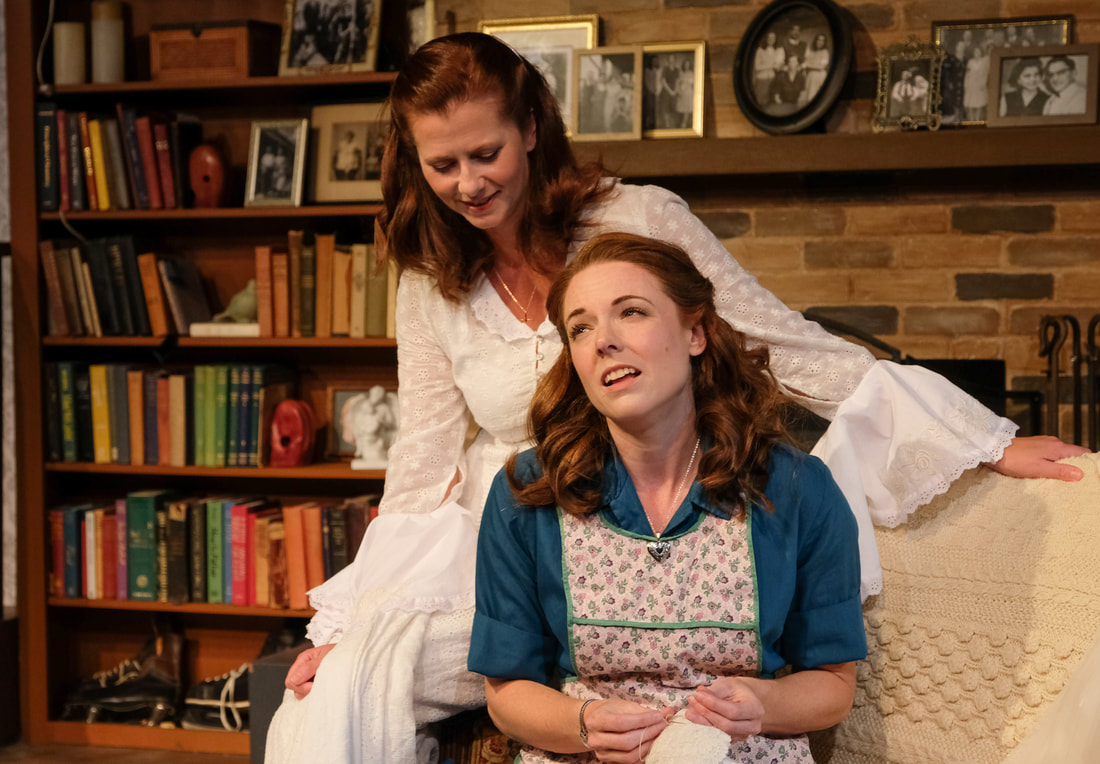|
Sarah Jane Nash (top) and Kate Rose Reynolds in "And Neither Have I Wings to Fly." Photo by Ken Jacques Metaphor alert! Metaphor alert! Whenever the title of a play, or any narrative work for that matter, includes the word “fly” it’s a safe bet that the ensuing story will have something to do with a person at the outset tethered by fate or circumstances being uplifted. In playwright Ann Noble’s “And Neither Have I Wings To Fly,” that person is Eveline Donnelly, a young Irish woman living a dutiful but mostly joyless life tending to her widowed father and her younger, impetuous sister, Kathleen. What will it take to get Eveline’s dreams off the ground? Why a ghost, of course.
But Noble’s 1995 play isn’t flighty at all. On the contrary, it’s grimly serious on the subjects of death and duty. Without complaint and with nary a smile, Eveline does what she believes she must do in a depressing, dysfunctional household – until the spirit of her mother appears (only to her), causing her to doubt everything, including her own sanity. “And Neither Have I Wings To Fly” is, then, a plum opportunity for a talented actress, and Scripps Ranch Theatre’s production has one in Kate Rose Reynolds. Her Eveline’s subtle transformation is accomplished with an aching, yearning grace. Reynolds previously appeared in SRT’s “Move Over, Mrs. Markham” and “Communicating Doors.” The play’s buttressing subplot involves sister Kathleen (Katee Drysdale, brimming with youthful impulsiveness), her engagement to earnest but bland Leo Doyle (Hayden Emmerson), her infatuation with a swaggering actor (Zackary Bonin) and her deep-seated issues with her and Eveline’s father, Peter (Walter Ruskin). Throw in Leo’s “bad boy” brother Charlie (Paul Eddy) falling immediately for Eveline and you have an extended Irish family drama at its juiciest. While the affected Irish accents are thick and the emotions turned up high most of the time, the staging under the direction of Jacquelyn Ritz retains enough introspection and humbled awareness of life’s temporality that its dignity and messages are not undone. The title of the play, incidentally, is taken from a Scottish folk song, one heard more than once, and chillingly, during the production. (Review originally published in San Diego CityBeat on 11/13/19.)
0 Comments
Leave a Reply. |
AuthorDavid L. Coddon is a Southern California theater critic. Archives
July 2024
Categories |
David Coddon |
|
